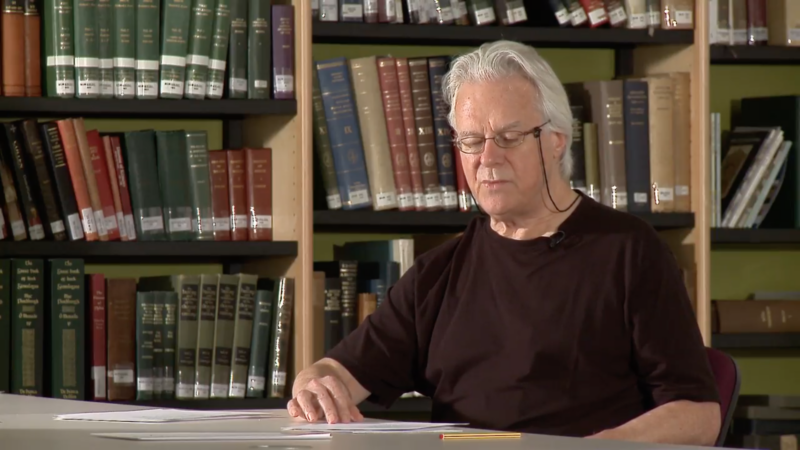As another sun-kissed series of the modern epic that is Love Island rolls into its final week, enthralling roughly three million viewers a night, an evening’s entertainment in your given student flat is slowly morphing into a strange game of cat-and-mouse enjoyed vicariously through a smattering of semi-naked British people. Is it only a matter of sweet time before the practiced pronunciation of “Fin-lay” in dulcet Lewis Capaldi-esque tones becomes a widely-accepted mark of culture?
For poet-cum-playwright Roderick Ford, however, the entertainment consumption policy is strict: “Garbage in, garbage out.” “I’m habitually cautious about what might influence my creative thinking”, Ford sets out in an email, “so [I] never watch TV, and avoid the bland, the second-rate, and the middle of the road”. Instead, he finds himself seeking out “excessive and unusual language and imagery – deliberately trespassing in places that others might avoid”. Considering Ford is just days away from debuting his latest work The Spider’s House in collaboration with a wealth of esteemed industry professionals in The Project Arts Centre, the leaves of his particular book may soon be in popular demand.
Ford presents his play, which is synopsised as “a nightmare from a disordered mind”, having won the Project Arts Realise Award. This production award was designed to support the production and presentation of ambitious new work in the venue by individual artists with disabilities. “Writing was integral to my being from an early age”, Ford reminisces. “As a person who has always had difficulty speaking, it gave me both a voice and a sanctuary from a world that I didn’t seem quite to belong to.”
“It became a part of my secret identity”, he continues, “a steady path to follow into an uncertain future”. During the several decades he spent in the UK being “heavily medicated by well-meaning doctors”, Ford recalls “struggling to write fantastic stories and baroque poetry”. “When I was finally liberated from chemical vacuity, I burned my bridges, took up poetry as my only literary mode and escaped to Paris to do the living in a garret on the left bank thing. I joined an excellent poetry workshop there…” he recalls, “…however in time I realised my poetry would be best served by living in a culture that spoke the language I was writing in. So I moved to Dublin in 1999”.
Since then, Ford’s poetry has earned him wide acclaim and has most recently become a vehicle through which he can dually explore and translate “the hidden aspects of being and the neglected shadow side [of things]” onto the stage. “Some people take the position that characters in plays should replicate language as spoken in day-to-day ordinary life”, Ford explains, “but I like poetic imagery and language, and I think that a play set in a gothic universe like The Spider’s House can more than support a fulsome use of it”. For Ford, the task of the artist is “to find the voices that have grown inside our woundings, and to ask them to speak their own truths” be it through poetry, play or a potent fusion of the two.
An interdisciplinarian at heart, Ford also fuels his creative impulses by deriving inspiration from painters such as Paula Rego and Frida Kahlo. Since being diagnosed with Asperger’s, Ford has begun “deliberately aestheticising the symptoms and modes of being associated with my autism and that of others’“, paralleling Kahlo’s aestheticisation of “her own particular woundings in her art”. “I find it useful to represent autism in this way”, he tells me, “rather than write about autistic people”.
“Indeed I have never created autistic characters in my work”, he continues, “so no one should go to The Spider’s House expecting a story about autistic people. It is a story written out of an autistic sensibility”.
For my final question, I ask simply: “So why should I trek out to Temple Bar to see the show?” In a flurry of fluorescent adjectives, I’m told: “Because it’s weird and outlandish, a gripping gothic love story, and totally thought-provoking. It speaks of the vicissitudes of marginalised characters in a parallel Europe. It is a lens on hidden interior life and a door into a mystery – See it and you will never forget it! Seriously, you won’t.” So, I guess that’s decided.
The Spiders House will run at The Project Arts Centre Temple Bar from February 27th–March 7th. Tickets at €14/18.







